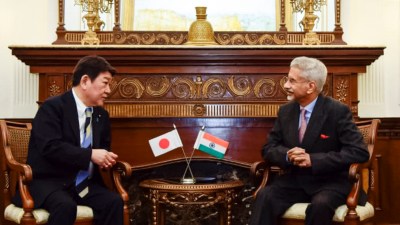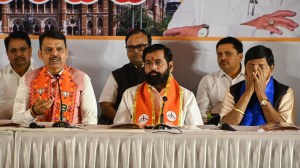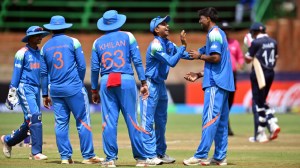Second coming
Now that Sachin Tendulkar has been handed back the crown that was rightly his, are we back to square one or does this mark a break with t...

Now that Sachin Tendulkar has been handed back the crown that was rightly his, are we back to square one or does this mark a break with the past? Given the selectors8217; tendency to be guided by extra-cricketing considerations, the verdict must remain in abeyance till the rest of the team is announced on August 6.
Will they persist with a series-to-series approach and effect another round of musical chairs to silence the critics, or will they finally get down to the gritty business of nurturing a well-rounded squad capable of rising to the challenges of a long season ahead? To that extent, Tendulkar is far and away a better choice to Ajay Jadeja as his batting credentials in both forms of the game and his performances on bouncy and crumbly pitches alike are without compare. Besides, his experience, his ability to improvise, his exemplary behaviour on and off the field and the respect he inspires among his teammates should bury the debate over his captaincy.
If there are apprehensions over Tendulkar8217;spromotion among 900 million selectors, they hinge on his first 17-month tenure as skipper from August 1996 to December 1997. His initial triumphs at home 8212; a one-off Test against Australia, a three-Test series against South Africa and the Titan Cup 8212; were soon forgotten on away series when he seemed increasingly at sixes and sevens, frowning away in bewilderment as his team8217;s lacklustre performances started rubbing off on his batting, as conspiracy theories started floating around.
So will new responsibility once again start telling on India8217;s most viable brand name? For one, Tendulkar has made it amply clear that it was not the burden of captaincy alone that weighed him down those 17 months; reports that he would not like to have Mohammed Azharuddin in his squad and that this time around he wants increased say in team selection indicate the phantoms in his mind. After all, he surely remembers the time in the Caribbean he SOSed for a particular spinner, and was sent a bowler he had never heard of, thetime his batsmen inexplicably crumbled under no pressure.
Tendulkar too needs to reassure a nation where cricket is religion that he too has learnt his lessons from the past. That he has left behind his Bombay obsession, that his management of his star bowlers will be more imaginative, that he is less brittle mentally. To be fair 8212; and to use Geoffrey Boycott8217;s dictum that the little master is a thinking cricketer 8212; every time he has been through a lean patch, he has learnt from his mistakes.
He no longer gifts his wicket with mindless slashes to square. In any case, 1998 marked a turning point in his career, the year quot;the mongol became a moghulquot;, and his poise after his father8217;s death during the World Cup points to increased maturity. Yet, tremendous responsibility rests on Tendulkar8217;s shoulders. Not only does he have to nurture a millennium side, he also has to go beyond the horses for courses philosophy and inculcate professionalism and attitude among teammates given to drooping shoulders. Havinghanded him the baton, the board would do well to give him a chance and ensure him the requisite support and flexibility.
- 01
- 02
- 03
- 04
- 05































